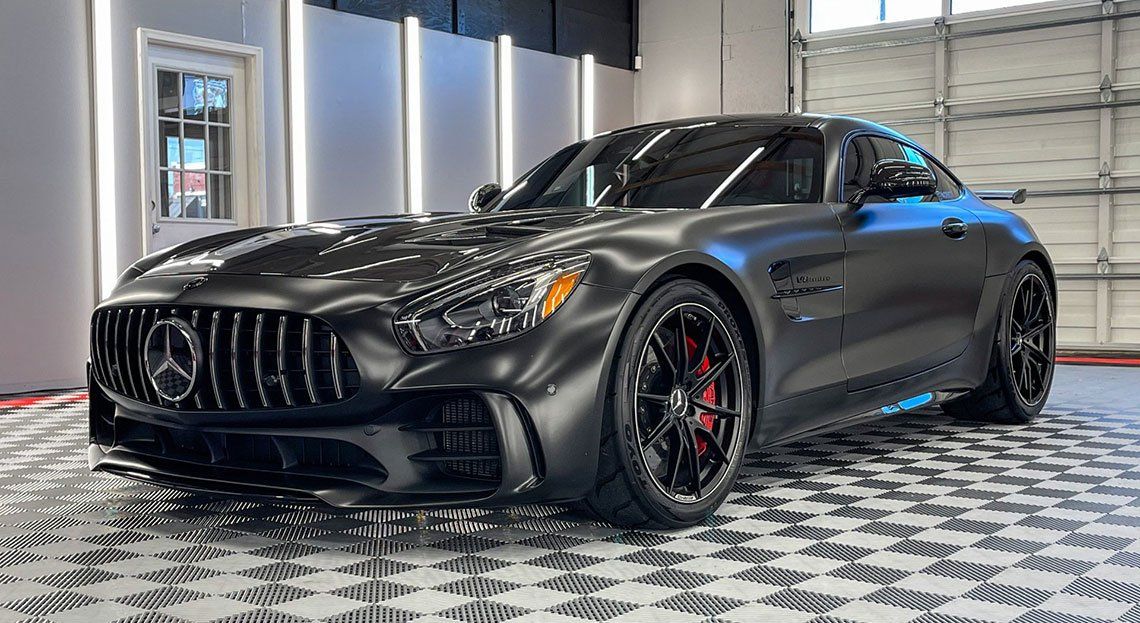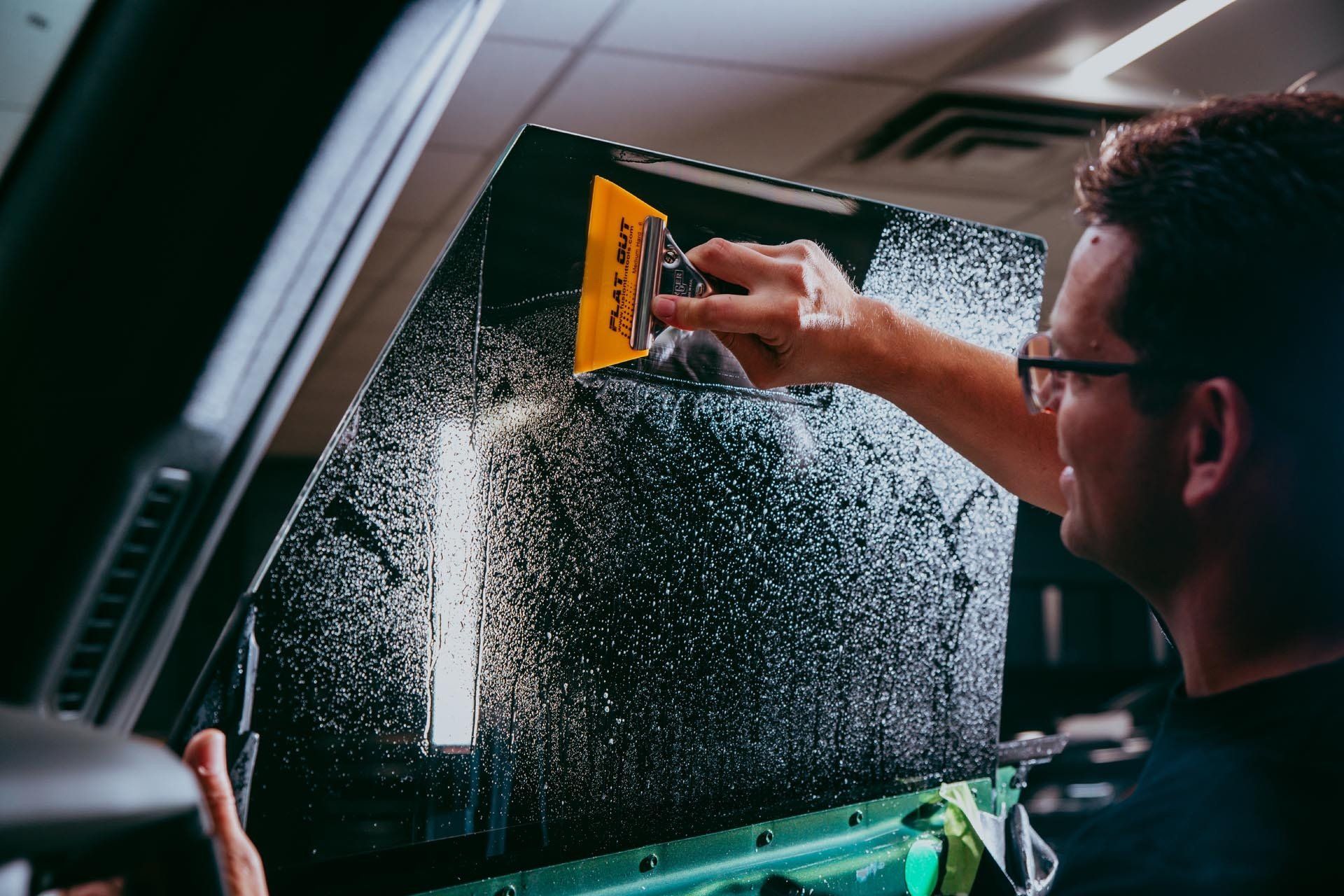When it comes to car accessories, window tinting often stands out as one of the most popular upgrades. Many car owners appreciate the sleek look and increased privacy that tinted windows provide. However, a key question looms: how long will that tint last? The answer isn’t straightforward, as various factors come into play. From the materials used to environmental conditions and installation practices, the durability of your auto window tint relies on a mix of quality and care. In this article, we'll unravel the secrets behind auto window tint longevity, offering insights to help you make informed choices for your vehicle.
The lifespan of
auto window tint can vary significantly based on the quality of materials used, with high-quality tints like LLumar and 3M typically lasting anywhere from 10 to 20 years. Proper installation also plays a crucial role; poorly applied tints may experience issues such as bubbling or fading, reducing their overall lifespan.

Factors Affecting Tint Lifespan
Quality of Materials
The first element to consider is the quality of materials used in the tinting. Higher quality tints, such as ceramic or carbon-based options, generally have a far superior lifespan compared to their lower-quality dyed counterparts. Some reputable brands are renowned for their ability to stand the test of time, with studies indicating that premium ceramic films can last upwards of 20 years. In contrast, budget-friendly dyed tints may only provide reliable performance for about five years before succumbing to fading and degradation.
Installation Quality
Next up is installation quality. Many problems arise from improper installation, leading to bubbling, peeling, and reduced effectiveness of the tint film. Investing in a professional installation ensures that the tint adheres correctly and maximizes its lifespan. This diligence pays off—numerous users have reported that professionally installed tints often last significantly longer than DIY efforts. For instance, one individual proudly noted that their professionally installed tint remained flawless for over 16 years, sparking admiration among fellow car enthusiasts.
As we move ahead, let’s examine how environmental conditions come into play.
Environmental Exposure
The next factor affecting tint lifespan is environmental exposure. Your car spends much of the day parked outside under relentless sun rays, subjecting the tint to prolonged sunlight, fluctuating temperatures, and moisture—all potential foes that can deteriorate even the best films over time. A vehicle parked continuously outside in sunny climates like Arizona can experience accelerated UV damage that simply isn't an issue for cars residing in milder environments.
Data reveal that cars associated with harsher climates can see a significant reduction in tint life, approximately 5-10 years less than those located in more temperate zones. This highlights the importance of considering where you'll predominantly park your vehicle before selecting your tint option.
Tips to Extend Tint Longevity
Extending the life of your window tint involves a few careful practices that can make all the difference. One of the simplest yet most effective methods is to use sunshades whenever possible. You might be surprised at how much of an impact this small addition can have on your vehicle's interior. By blocking harmful UV rays and reducing heat buildup, sunshades help preserve not only the aesthetics of your tint but also its performance. Prolonged exposure to direct sunlight can weaken the film’s adhesive over time, leading to premature peeling or fading.
Another key step lies in cleaning your tints carefully and thoughtfully. It's tempting to rely on strong cleaners that promise a "like-new" shine, but using harsh or ammonia-based chemicals can be detrimental. Instead, opt for mild, non-ammonia-based solutions specifically formulated for tinted windows; these will cleanse effectively without degrading the film's integrity. A clean microfiber cloth works wonders here—its softness helps prevent unsightly scratches while ensuring that dirt and grime are wiped away gently.
Regular Inspections
Regular inspections are crucial for maintaining your window tint’s longevity. Take a few moments every few months to thoroughly examine your tints for any signs of damage, such as bubbling, peeling, or discoloration. These small areas can worsen if left unaddressed, transforming into much larger issues over time. If you catch a problem early, you may find that minor repairs are all that’s needed.
Think of it like checking the oil in your car; a small act of diligence can save you from bigger headaches later on.
Additionally, remember to give your tints some time to cure right after installation—about 30 days ideally—before rolling down your windows or giving them a full clean. This curing period allows the adhesive to settle properly, enhancing durability.
Lastly, it's beneficial to park in shaded areas whenever possible or even use reflective car covers to prevent excess sun exposure when parked for longer durations. Not only does this keep your vehicle cooler inside, but it shields the tint from the relentless summer sun, which could otherwise accelerate wear and tear.
When combined, these practices create a comprehensive approach that protects and extends the life of your window tint, ensuring that it continues to perform beautifully for years to come while also contributing to your vehicle's overall aesthetic appeal and comfort.
As we explore ways to keep those windows looking pristine and functional, it's essential to consider how proper care deepens the benefits derived from these installations.

Proper Maintenance for Window Tints
Routine maintenance can substantially impact the longevity and appearance of window tints. One essential aspect of keeping your tint pristine involves specific cleaning techniques. Using a soft microfiber cloth along with a solution of water and mild soap creates the ideal combination for safely removing dirt and grime. Over time, users have reported maintaining the new-like clarity of their window tints for over ten years simply by cleaning with this gentle method.
It's vital to avoid harsh chemicals, which can degrade the tint material, leading to discoloration or peeling. For instance, ammonia-based cleaners should be strictly avoided as they can break down the film’s integrity, drastically reducing its lifespan. Instead, sticking to a straightforward routine of cleaning with water or a pH-neutral soap is highly recommended, ensuring that your windows remain crystal clear without risking damage.
While cleanliness is key, proper handling during cleaning is equally crucial to preserving your window tint.
Avoiding Edge Damage
When performing routine cleanings, special care must be taken around the edges of the tinted windows. If rough handling occurs near these areas, it can cause the edges to peel. This peeling not only looks unsightly but can lead to further deterioration of the entire film. To prevent this consequence, it's best to approach the edges with gentle strokes using your microfiber cloth and avoid any abrasive movements completely.
Always prioritize a careful touch when you're navigating close to the edges of your window tints; just because it looks sturdy doesn't mean it won’t succumb to stress.
Even in cases where you handle everything correctly, wear and tear may still affect your tint over time. Therefore, recognizing early signs of damage and understanding when it might be necessary for repair or replacement is essential for maintaining that crisp appearance over the years of use. This way, you’ll ensure your investment continues to serve its purpose while enhancing your vehicle’s aesthetics and functionality.
By consistently applying these maintenance steps, you'll keep your window tint in top condition and fully enjoy its benefits without worrying about premature wear. It leads naturally into exploring what options exist when you encounter issues with existing films.
Is Window Tinting a Worthwhile Investment?
When evaluating the worth of window tinting, consider all its benefits rather than just its initial expense. Quality window films provide substantial savings on energy costs over time, especially with their ability to keep indoor temperatures comfortable.
For example, they can drastically reduce heat entering through your windows—up to 60%—which translates to less demand on your air conditioning system. This means that during those sweltering summer months, you could see noticeable reductions in your energy bills as you rely less on your AC unit.
Indeed, this cost-effectiveness is one of the primary reasons homeowners and vehicle owners alike are opting for window tinting.
Moreover, UV rays pose significant threats not just to your skin but also to the interior of your car or home. High-quality window tints block an impressive 99% of these harmful rays, extending the life of protective surfaces in your vehicle or house. Conversely, neglecting this feature may lead to fading upholstery and peeling surfaces that require costly repairs down the line.
Resale Value
Furthermore, let's consider how professional window tinting can significantly enhance your vehicle's resale value. Interested buyers often look for features like privacy and interior protection when making a purchase decision. Tints maintain that new car feel, safeguarding interiors from wear and tear while potentially adding hundreds of dollars to the asking price. Dealers appreciate having vehicles with good-quality tints on their lots because they're easier to sell — the appeal of a well-maintained car can’t be overstated.
As any seasoned car seller or buyer will tell you, first impressions matter. A vehicle with pristine tinted windows suggests care and attention by the owner, translating to confidence about the overall upkeep of the car.
Investing in premium, professionally installed window tints is undeniably an investment in not just style but functionality as well. It's essential now more than ever to see beyond the initial cost and acknowledge that quality window tinting ultimately enhances comfort, protects against sun damage, and maintains or increases resale value over time.
In summary, it becomes evident that high-quality window tinting goes beyond aesthetics — it offers practical advantages that benefit both your finances and lifestyle. So when considering upgrades for your home or vehicle, investing in superior auto tint becomes worthwhile indeed.
For more insight into the value of quality window tinting for your home or business, reach out to us at Superior Auto Shine or call (253) 260-6868 today!

